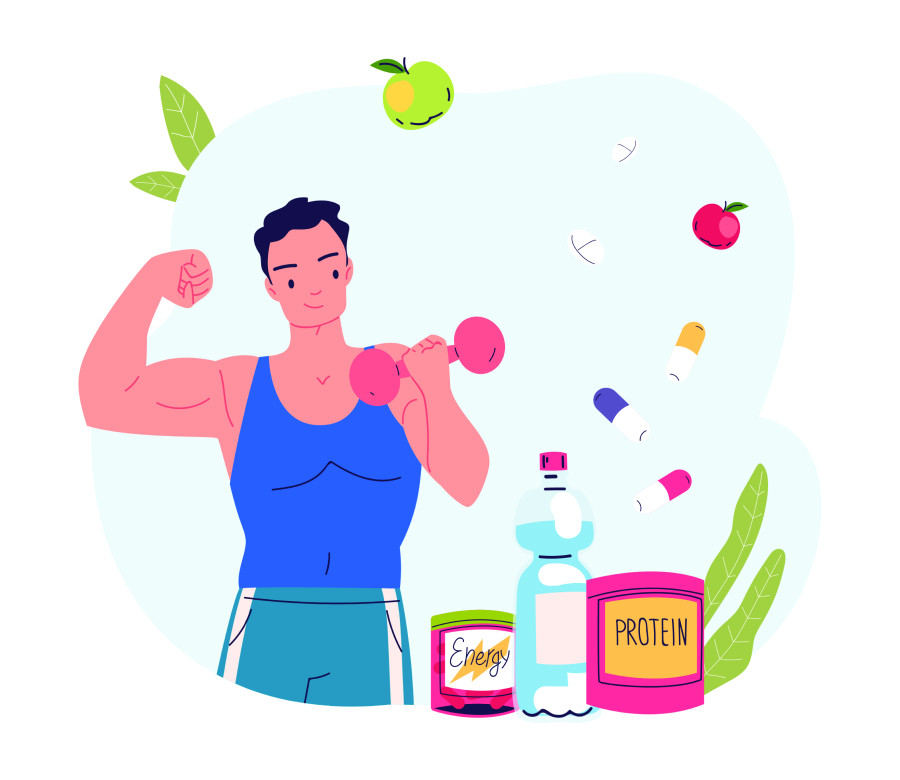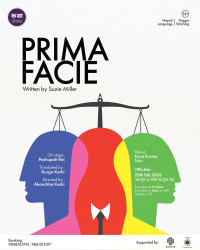Culture & Lifestyle
Supplements are meant to ‘supplement’ the diet, not replace meals
From whey protein to fat burners, supplements are becoming common in Nepali fitness culture. But misuse, misinformation, and weak regulation raise concerns.
Reeva Khanal
In recent years, the fitness landscape in Nepal has witnessed a significant shift, with an increasing number of individuals turning to protein powders and dietary supplements to enhance their workout regimes. What was once primarily associated with professional athletes and bodybuilders has now permeated the routines of everyday gym-goers. This surge in supplement use can be attributed to various factors, including the influence of social media, the rise of fitness influencers, and the proliferation of urban gyms. However, amidst this trend, questions regarding these supplements' safety, efficacy, and necessity have emerged.
To provide insight into these trends, Dina Rana, a certified personal trainer and plant-based athlete who specialises in strength, mobility, aesthetic fitness, and safety, sheds light on how supplements are being used in Nepal, the common misconceptions surrounding them, and how fitness enthusiasts can navigate the supplement landscape responsibly.
How has the use of protein powders and other supplements changed among your clients in the last few years, and what do you think is driving this trend?
In the last three to five years, I’ve noticed a significant increase in the use of supplements in Nepal. Whereas previously only serious athletes or bodybuilders relied on protein powders, now even beginners and regular gym-goers are purchasing them.
This trend is driven by social media exposure, the rise of fitness influencers, and the growing number of gyms opening across cities. Many people see supplements, particularly protein powders and pre-workouts, as a “shortcut” to achieving results, hoping they can accelerate progress without putting in the effort.
To what extent do peer influence, social media, or urban fitness trends affect clients’ decisions to use supplements?
Peer influence plays a huge role here. For example, if someone’s gym friend uses whey protein, they often feel they need to take it too, just to keep up. Social media platforms—especially TikTok, YouTube, and Instagram—add to this effect, as many Nepali influencers promote products without providing much educational context.
Urban trends also contribute, such as the pursuit of the “shredded summer body”, which pushes young people to try whatever they see online, often without understanding whether it’s appropriate.
How informed are gym-goers about the safety and effectiveness of their supplements?
Most of my clients aren’t particularly well-informed. Many simply follow friends who go to the gym or rely on the advice of sellers. Very few actually research the correct dosage, the quality of the products, or whether they need the supplement. For instance, some believe drinking protein shakes alone will build muscle, without considering proper training or diet. Misconceptions like this are unfortunately quite common.
What guidance do you provide clients regarding supplement use, and how do you balance fitness goals with safety concerns?
I always stress the importance of focusing on whole foods first. Supplements are meant to “supplement” the diet, not replace meals. If clients struggle to meet their protein goals, I may recommend whey protein to help them reach their macronutrient targets. I also provide guidance on proper dosages, timing, and potential side effects—particularly for products like fat burners or strong pre-workouts. For me, ensuring clients prioritise safety and long-term sustainability is far more important than chasing quick results.
Have you encountered cases of misuse, overuse, or side effects among clients due to supplements? Could you share some examples?
Yes, unfortunately, I have. One client, for example, would take two to four scoops of whey protein at once while consuming very little real food, which caused bloating and stomach issues. Another client relied on pre-workout daily for several months and eventually could not train without it. These cases highlight the importance of proper guidance and understanding regarding supplement use.
How do you perceive the quality and regulation of supplements available in Nepal, and how does this impact the choices of gym-goers?
Quality is definitely a concern here. Many supplements are imported without strict regulation, meaning fake or expired products can sometimes be found on the market. Prices are often high, so clients might opt for cheaper alternatives without knowing they are authentic. This lack of reliable regulation makes it difficult for beginners to feel confident in their consumption and can sometimes lead to poor choices.
How does supplement use shape Nepali fitness culture? Does it promote healthy habits or create unrealistic expectations?
It’s a bit of both. Supplements like whey protein can help people meet their nutritional goals and stay consistent with their training. On the other hand, many people view supplements as “magic,” expecting rapid transformations without fully understanding the effort required. This can create frustration and stress, particularly among young people.
Nepali fitness culture is still developing, but if we can emphasise education alongside supplement use, it has the potential to promote healthy habits rather than unrealistic expectations.




 10.12°C Kathmandu
10.12°C Kathmandu















